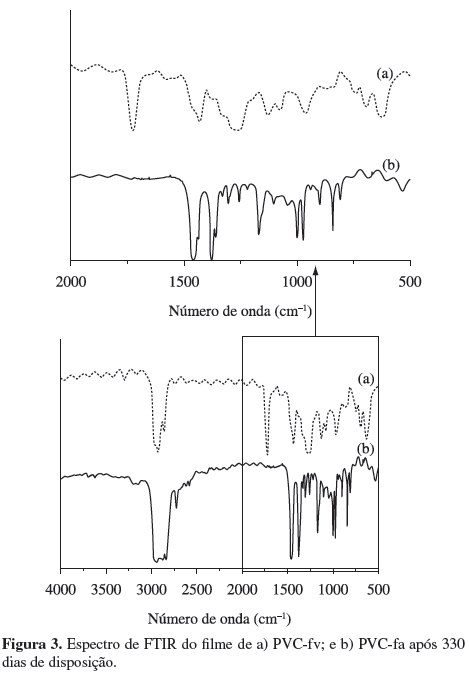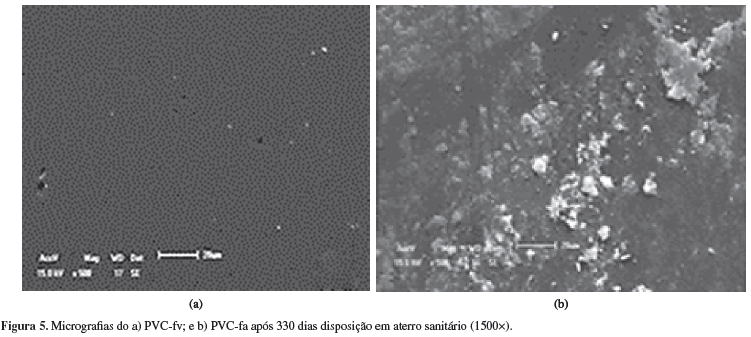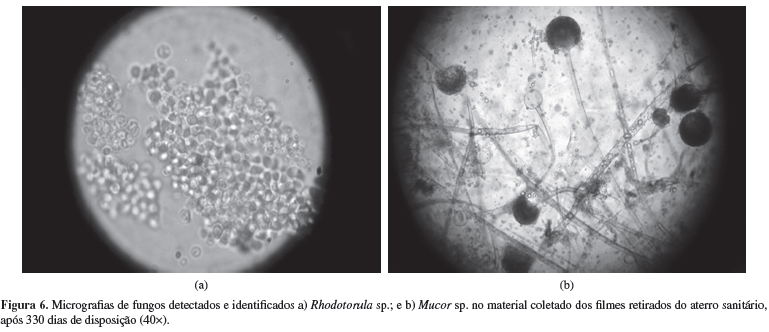The poly (vinyl chloride) (PVC) is one of the polymers used in the field of packing materials and footwear sector, and due its diversified applications, it has presented in a high percentage of domestic and industrial landfills It is an amorphous polymer and may present different levels of plasticizer and other additives responsible for its stabilization, which can influence the lifetime and the properties of the final product. This work presents the study of the chemical and biological degradation of poly (vinyl chloride) flexible (PVC-f) films, at São Giácomo landfill, in Caxias do Sul city after 330 days of disposition. The samples of PVC-f were evaluated by thermal (TGA), structural (FT-IR) and morphological (MEV and MO) analysis after disposition. Samples of PVC-f disposed to landfill (PVC-fa) showed a single event of weight loss, when compared to PVC-f undegraded or virgin (PVC-fv), besides a higher weight loss and structural changes. In the PVC-fa samples, morphological modifications were observed, which are very important to describe the degradation phenomenon as superficial erosion and bioerosion, which propitiated the action of the yeast, bacteria and fungi present in the environment on the disposed polymer.
Degradation/biodegradation; PVC; landfill; microorganism; microscopy techniques






